Don’t Get Left Hanging, What You Should Know About Traction Control

Many years ago I was exploring a trail in the mountains east of Tucson, Arizona, in my FJ40, and came upon a couple in a shiny new 4x4 Toyota pickup. The driver had managed to high-center the transmission skid plate on a rock ledge so that the right front and left rear tires of the truck hung just an inch or two in the air and spun uselessly when the fellow applied throttle.
The couple, new to backcountry driving, was bewildered that their “four-wheel-drive” vehicle had been rendered completely immobile by such a minor obstacle and were convinced something was wrong with the truck. I picked up a fist-sized rock from the side of the trail and kicked it solidly under the hanging rear tire. “Try it now,” I said—and the Toyota bumped free. They were astonished and even more bewildered—until I explained how a differential works.
Open Differential
When any four-wheeled vehicle makes a turn, each wheel needs to rotate at a different speed because it travels a different line than the others, and thus a different distance. If, for example, the two rear wheels were locked together with a solid axle, the tires would scrub horribly every time the vehicle turned, and handling would be affected dangerously.
Thus, we divide that axle in two and connect them with a differential—a system of gears that transfers power from the driveshaft to the wheels while allowing them to rotate at different speeds in a turn. In a four-wheel-drive vehicle we add another driveshaft and differential at the front, so those wheels can be driven as well.
هذه القصة مأخوذة من طبعة March-April 2017 من Tread.
ابدأ النسخة التجريبية المجانية من Magzter GOLD لمدة 7 أيام للوصول إلى آلاف القصص المتميزة المنسقة وأكثر من 9,000 مجلة وصحيفة.
بالفعل مشترك ? تسجيل الدخول
هذه القصة مأخوذة من طبعة March-April 2017 من Tread.
ابدأ النسخة التجريبية المجانية من Magzter GOLD لمدة 7 أيام للوصول إلى آلاف القصص المتميزة المنسقة وأكثر من 9,000 مجلة وصحيفة.
بالفعل مشترك? تسجيل الدخول
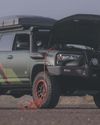
SPEED CRUSH
Evolving Through the Trails: The Journey of ARB'S 2020 Toyota 4Runner
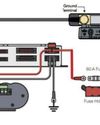
BATTERY POWER
INSTALLING A REDARC SMART BATTERY MONITOR AND DUAL BATTERY CHARGER IN A 2018 RAM 1500.
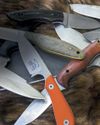
KNIVES OF THE INSTRUCTORS
DID YOU EVER WONDER WHAT THE PROS CARRY? HERE'S A LOOK.
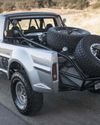
FROM DREAM TO REALITY
The Twin-Turbo 1969 Ford F-100 Race Truck
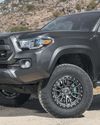
TRUE BOLT-ONS
Installing AERO6-DM Direct-Mount Front Brake Kits from Wilwood
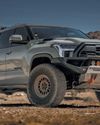
KHONSU
Purpose-Built and Ready for Anything

THE 2024 CENTERFORCE ADVENTURE RUN
Like buffalo, manual transmissions once roamed in great numbers across this beautiful land.
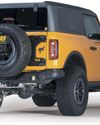
ADDING A SPARE
Being able to carry an oversized spare tire on the exterior tailgate is important, and the new Smittybilt Bronco HD Pivot is up to the task.
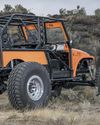
RARE AND BUILT RIGHT
The Story Behind Jake Winterton's 1972 Suzuki LJ10 Jimny

THE 2024 ROUSH FORD F-150
The Perfect Blend of Style, Function and Capability